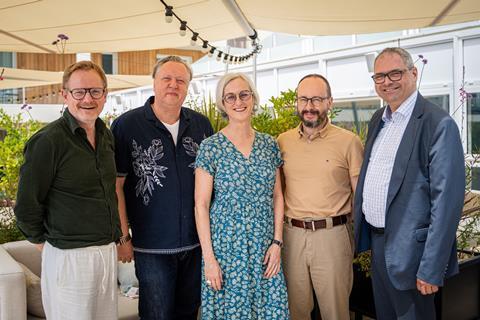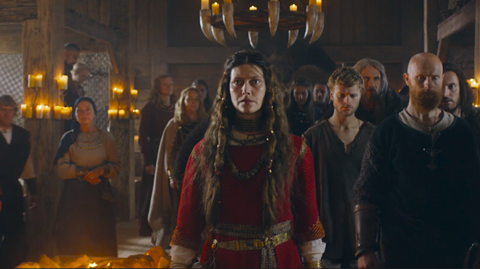Drama-led feature documentary believed to be first co-pro between Malta, Latvia and Estonia
SVT in Sweden, Arte in France and Germany, and ZDF Studios have joined forces on a drama-led feature doc from Manchester and Malta-based producer Urban Canyons.

Knights of the North - The Baltic Crusades tells the historically accurate story of a young Swedish knight who joins a German Crusader military order in Livonia to convert the last pagan people of Europe.
The show, available as a 1 x 90-minute single or in a 2 x 45-minute version, has also been pre-sold by ZDFS to broadcasters including SBS in Australia and Rai in Italy.
Other buyers include SRF (Switzerland), Česká Televise, PBS (Malta), ERR (Estonia), Go3 (Baltic States), and TV24 (Latvia).
Urban Canyons is the majority co-producer, working with Latvia’s Tritone Studio and Ulm Production in Estonia.
Each Baltic co-producer raises national funds and manages the drama filming in their respective countries, with Urban Canyons looking after overall production and delivery.

Mikael Österby, head of factual at SVT, described the show as “a fascinating fact-based story that looks at the 250-year Northern Crusades that shaped the world of the Baltics and Medieval Europe.”
He added: “We are looking forward to the high-end cinematic re-enactment that Urban Canyons is known for, while managing to deliver historically accurate programming.”
Sebastian Peiter, Urban Canyons exec producer, added that the Malta/Latvia/Estonia co-production is believed to be a first for the industry.
“In these difficult times, especially with the lack of American and Asian co-pro partners, high-end specialist factual can only survive in collaboration with European state broadcasters and by sharing workflow and rights with fellow European producers who can bring additional state and broadcaster funding from their territory,” he said.



![Spelet_grupp_16_9[83]](https://d11p0alxbet5ud.cloudfront.net/Pictures/100x67/7/6/6/1459766_spelet_grupp_16_983_736931.jpg)




No comments yet